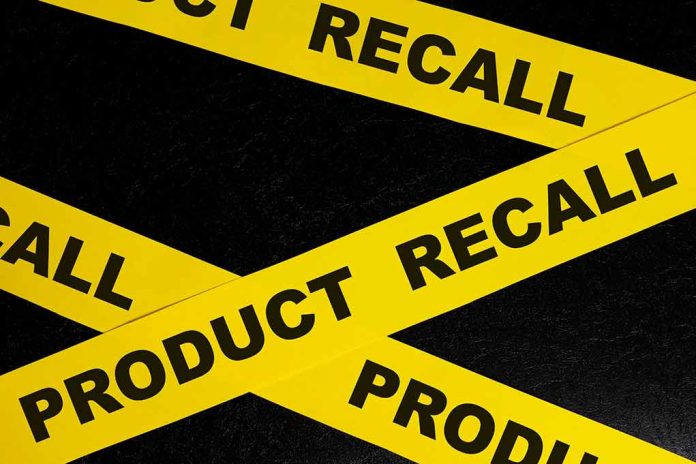
Consumers are urged to check their walnut purchases carefully as a widespread recall has been announced due to severe contamination issues.
At a Glance
- Flagstone Foods, LLC. is recalling Emerald Kettle Glazed Walnuts due to undeclared allergens.
- Organic walnuts have been recalled because of E. coli risk.
- Stutz Packing Company is recalling Shelled Walnuts due to potential Listeria contamination.
- Consumers should return or discard affected products immediately.
Flagstone Foods Recall Details
Flagstone Foods, LLC. is recalling 6.5oz packages of Emerald Kettle Glazed Walnuts due to undeclared peanuts, almonds, and pecans. The affected packages have a best-by date of June 28, 2025, and the GTIN for these walnuts is 010300808947. Customers are advised not to open the packages and to return them to Publix for a full refund. Unnotified allergens can pose a life-threatening risk to individuals with allergies to peanuts, pecans, or almonds.
E. Coli Concerns in Organic Walnuts
Organic walnuts sold in bulk bins at several retail stores, including Whole Foods and Natural Grocer, have been recalled due to a risk of E. coli O157:H7 contamination. This recall affects walnut halves and pieces sold in 18 states, including Arizona, California, and Texas. Exposure to E. coli O157:H7 can lead to severe health issues such as severe diarrhea, kidney damage, and potentially death. Consumers in the affected states should avoid buying walnut halves and pieces from bulk bins.
Listeria Risk in Shelled Walnuts
Stutz Packing Company of Indio, CA is recalling 1-pound packages of Shelled Walnuts due to potential contamination with Listeria monocytogenes. The recall was initiated following routine sampling that detected the bacteria in the finished products. Affected walnuts were distributed to food bank warehouses in Texas and Arizona and further distributed to smaller food banks, school lunch programs, shelters, and prison food systems. Listeria infections can be severe, especially for high-risk groups such as pregnant women, the elderly, young children, and individuals with weakened immune systems.
A nationwide recall was just announced on walnuts due to an E. coli contamination, causing 12 illnesses so far. https://t.co/j70fITSuES
— EatingWell Magazine (@EatingWell) May 1, 2024
Safety Measures and Consumer Advice
The FDA notes that no illnesses have been reported related to these products as of the recall posting. Consumers are advised to be vigilant in keeping track of recalls by checking real-time notices from the USDA and FDA. If a product matches a recall notice, it should not be consumed; instead, the product should be returned for a refund or disposed of as instructed. Proper cleaning of kitchen surfaces and utensils that may have come into contact with contaminated products is also crucial to prevent cross-contamination.
Keeping Up with Health Advisories
Consumer vigilance is critical in maintaining public health safety, especially when it comes to food contamination. Staying updated with health advisories and recalls can prevent life-threatening situations and ensure the well-being of consumers, particularly those in vulnerable groups. Authorities continue to emphasize the importance of prompt action and strict compliance with safety guidelines to mitigate risks associated with contaminated food products.
This recent wave of walnut recalls also prompts an important reflection on why food recalls are on the rise and what proactive measures can be taken to ensure consumer safety in the future.
Sources
1. Walnuts recalled after product sampling finds Listeria
2. Organic Walnuts Sold in Bulk Bins Recalled Due to Risk of E. Coli
3. Walnut Recall Sparks Warning to Customers









